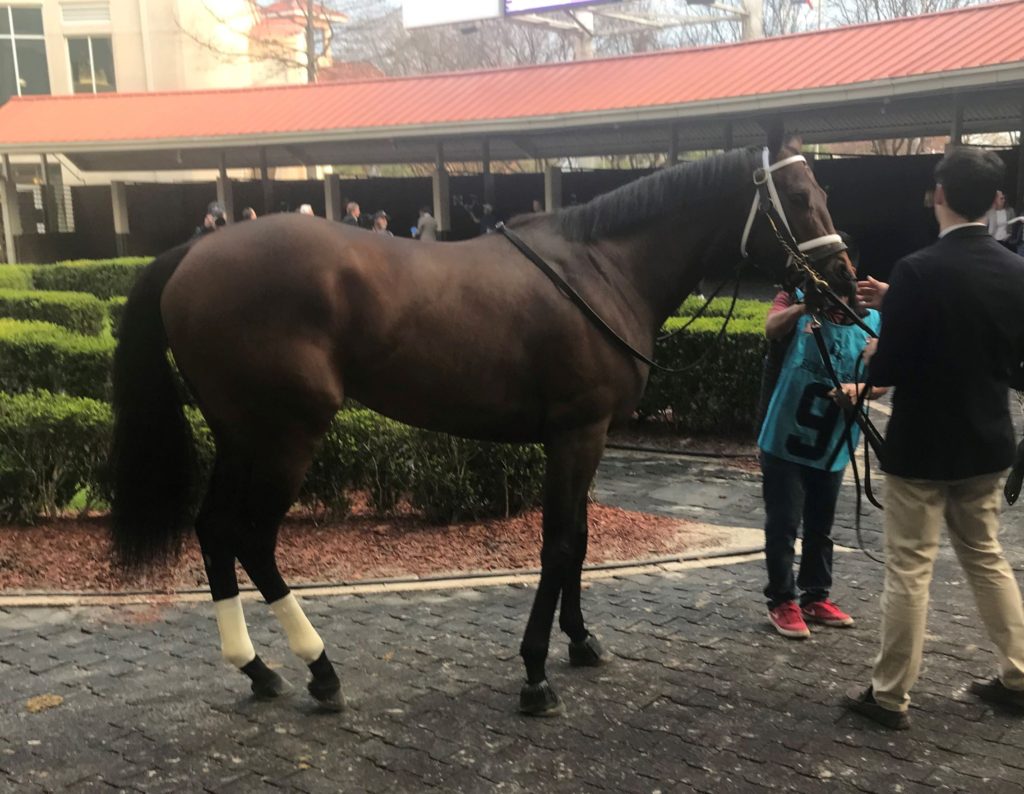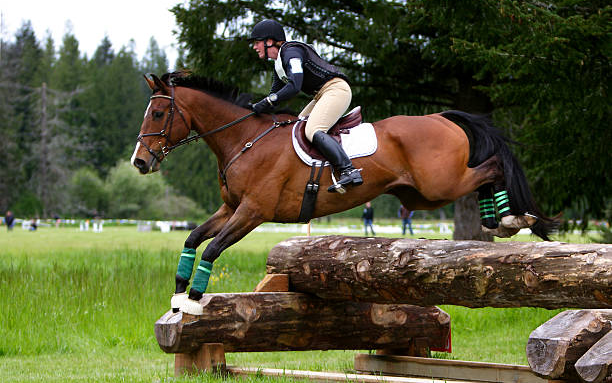Last updated: May 3, 2023
Retired racehorses are an excellent choice for equestrians of all levels and are extremely popular trail riding, dressage, and barrel racing horses. As such, I get asked all the time when a specific horse is going to retire from racing.
In general, racehorses retire between eight and ten years old. However, it’s challenging to know when their racing career will end as some might not be competitive anymore because they lack the speed, while others are forced out due to injury much sooner than expected.
Horses that retire from racing for the right reasons can do very well in a new career, but other factors, such as when they retired and why it happened, might determine how successful they will be with their new endeavor.

Factors that determine when a racehorse retires
Every horse is different, but in general, a racehorse retires when it has reached its limit or if its health starts to decline. Some of the factors that determine when a racehorse retires are age, injuries, and performance.
Injuries for some racehorses into retirement
When racehorses retire, the most common reasons are injury or age. Racehorses are at higher risk for injury than most other types of horses, and injuries can happen due to several factors, including incorrect training methods and racing accidents.
Two crucial factors contribute to these common injuries: conformation and weight, and injuries come in many forms: bone fractures, joint injuries, ligament tears, muscle strains, and fatigue, all of which can lead to lameness.
Injuries that require surgery will often cause a horse to end its racing career because they need time to heal before being able to compete again without pain. Some horses may never recover from an injury and have no choice but to permanently retire after one too many setbacks in their recovery process.
Age catches up with racehorses.
Age is also another factor for retirement, as it’s not uncommon for older horses to experience more frequent injuries than younger ones do. Riders might notice signs during races occasionally when these old-timers simply don’t have the same energy and stamina anymore!
Some horses don’t have the speed to be successful.
Another common reason why racehorses retire is that there are no more races that they can compete in. This is often the case for horses that are retired from racing before they reach their prime age.
For example, a horse may have won a couple of races as a two or three-year-old but is not fast enough now at four, and it’s no longer competitive and is consistently out of the money. These are typically the type of retired racehorses that have successful careers after racing because they were fast enough to win some races and are still young and healthy.
Its owners may decide the horse is too expensive to keep racing.
A final reason why these animals might be forced into retirement is if their owner decides not to continue paying the training fees of the animal anymore, and so they rehome it with someone else who will take care of them instead.
Owners may decide that maintaining this type of expensive animal isn’t worth it anymore if they’re no longer winning enough money to pay their training fees.

What do racehorses do after they retire from racing?
Racehorses retire from racing when they are no longer competitive, but that doesn’t mean their career is over! Someone can retrain them for other tasks, such as riding lessons or show jumping, and others do nothing but eat and sleep!
Racehorses often retire from their career at an age when they have years left to live out their golden years comfortably on pasture land. Still, some retirees go back into competition as eventing horses, barrel racing, and even showjumping.
Many factors determine whether a horse will get into training after they retire from racing, such as age, breed type, and injuries sustained while running on the track. The average lifespan of an ex-racer in North America is between 20-25 years old, meaning most horses will have a long life after their racing career. –
Racehorses can become broodmares.
Some racehorses are retired because they aren’t as competitive anymore, but their genetics make them valuable enough to breed with other high-quality racehorses. They produce offspring and raise the foals before being bred again.
Also, stallions can be retired to stud and breed many mares each year; as for geldings; they have no such future. Once they’ve been castrated, they are sterile.

Some retired racehorses are used in dressage.
Some racehorses need to retire because they are no longer up to the level of competition. But if a horse is athletic, has good balance, and is willing to learn, dressage might be an option for it! Dressage is an event that requires horses to respond to riders and be aware of their surroundings while they perform movements.
Mature horses often make better dressage partners because it takes a lot for them to get spooked or lose control now that they’re used to the things around them. Dressage might also be an option if you want your horse’s sensitive side tapped into!
It requires a calm demeanor in order for the rider to communicate with their partner/horse through body language. Retired flat track racers can compete at Grand Prix-level dressage competitions if their trainers felt they were up for it,
Showjumping
Retired racehorses might have a second career in jumping competitions, which don’t require the horse to be as fast. But showjumping does need an athletic horse that can jump high! In order to succeed in jumping, a horse must be confident and have a stable temperament.
Retired racehorses are often used for Polo.
The polo rules are simple enough: each team attempts to score goals with their ball while preventing their opponents from doing so by hitting it away with their mallet. The qualities of good polo horses are speed, instinctive ability, and endurance. Ex-racehorses have all these characteristics in spades which is why they’re the perfect choice for this demanding sport.
Pony horses
When racehorses are led to the paddock and the starting gates for a race, they are accompanied by another horse, called a pony horse. A pony horse accompanies these horses to help them calm down before running out onto the track; this helps keep them at ease so that they are ready to run when the race starts.
Most pony horses are retired racehorses and cherished by their owners and trainers.
Former racing Quarter horses make excellent barrel racing horses.
With a speedy horse, you can compete in barrel racing. A top-tier Quarter horse that retired from the racetrack is what most successful barrel riders use to get ahead of their opponents and win those timed events.
Barrel racers need a horse with an explosive stride to get around a barrel and one that can run fast to the exit. Barrel racing is all about speed and timing, so retired racehorses check all the boxes.

Conclusion
A retired racehorse’s life doesn’t end when they stop running on the track, and there are many ways that these animals can be used and develop a relationship with their new owner.
Roughly 20 percent of retired racehorses are retrained in other equestrian events, and the same percentage is retired for breeding. Because Quarterhorses are more versatile than Thoroughbreds, I assume these numbers would be even better if they were available to me, but unfortunately, there aren’t any statistics backing this up.
Below is a YouTube video about one woman’s effort to retrain retired racehorses.
FAQ
Do racehorses get slaughtered?
Some racehorses are sent out of the country for slaughter. The meat of the high-priced horses is seen as a luxury food in many Asian countries, but now it is common at restaurants and markets across Europe too.
What are retired racehorses called?
A retired Thoroughbred racehorse is called an “Off The Track Thoroughbred (OTTB). An OTTB is registered with the Jockey Club and retired from racing or training due to injury, lack of talent, or old age.

About the Author: Miles Henry
Lifelong Horseman | Racehorse Owner | Published Author
Miles Henry brings over 25 years of hands-on experience training and owning Thoroughbred racehorses. Raised with Quarter Horses and Appaloosas, he’s spent a lifetime learning from horses—on the track, in the barn, and in the field. Today, he runs a small but successful racing stable in Louisiana and shares real-world insights on HorseRacingSense.com, helping horse owners, fans, and bettors navigate the sport with confidence.
📚 Books: View Miles’s books on Amazon »
🎧 Podcast Guest: Animal Tales Ep. 32 |
YouTube Interview
📩 Newsletter: Sign up for racing tips and horse care advice »
🔗 Follow Miles:
Twitter |
Facebook |
YouTube


